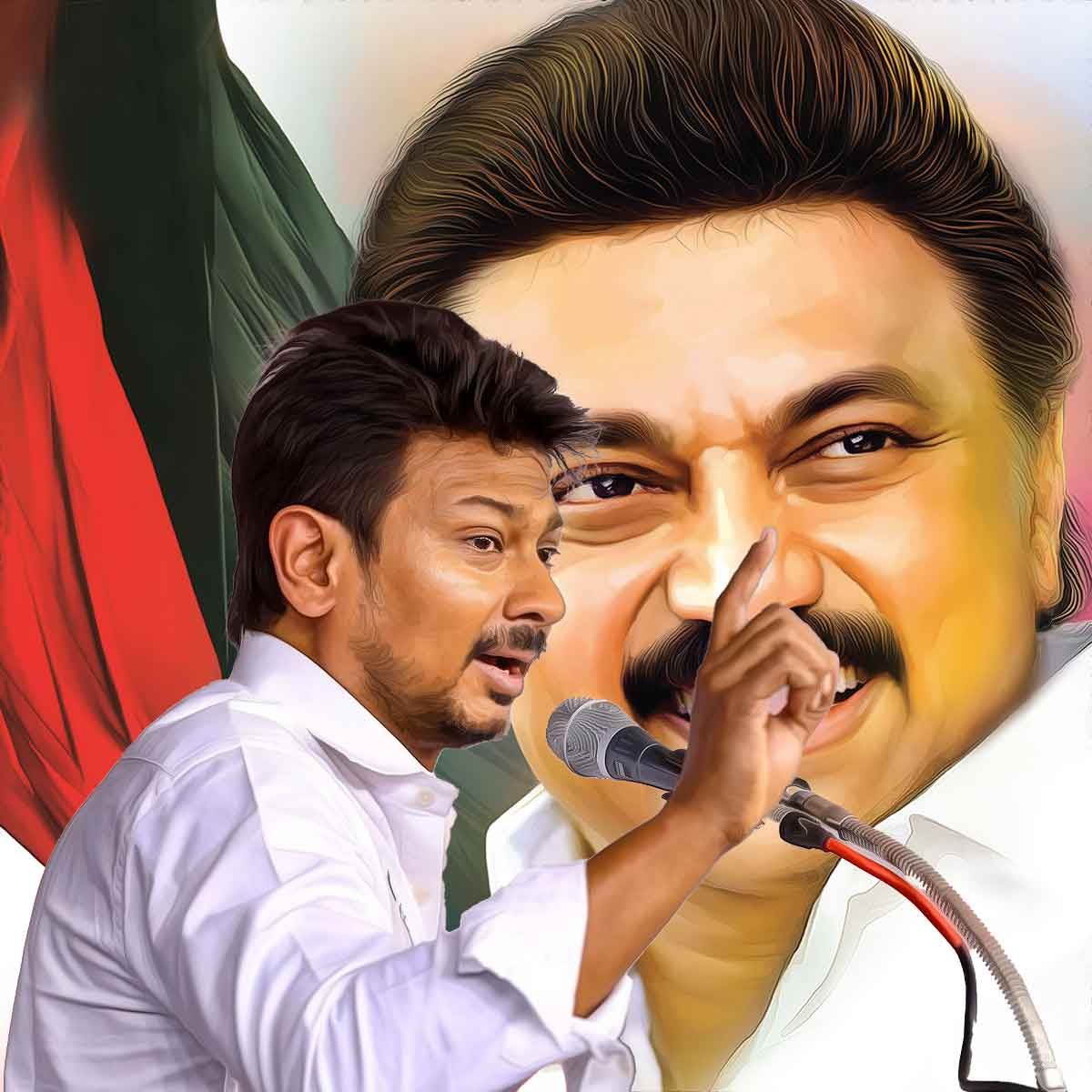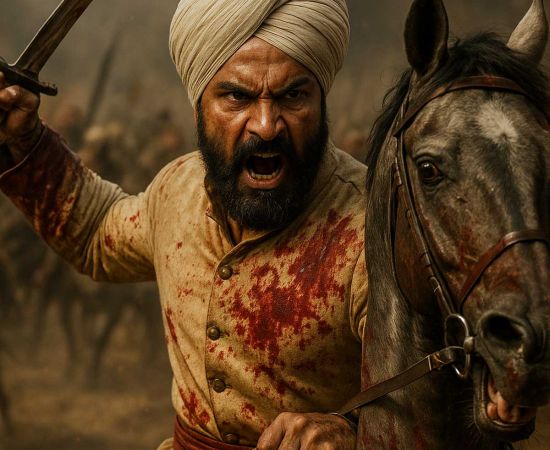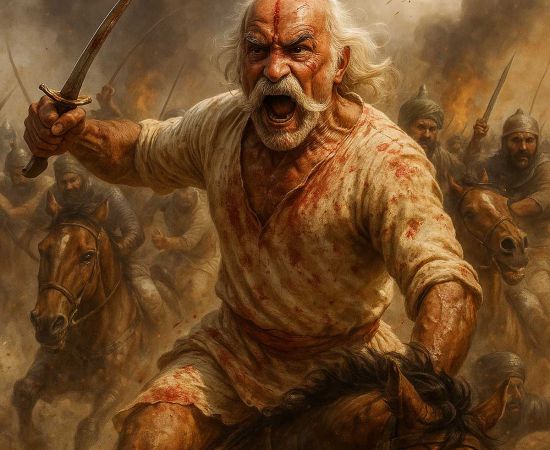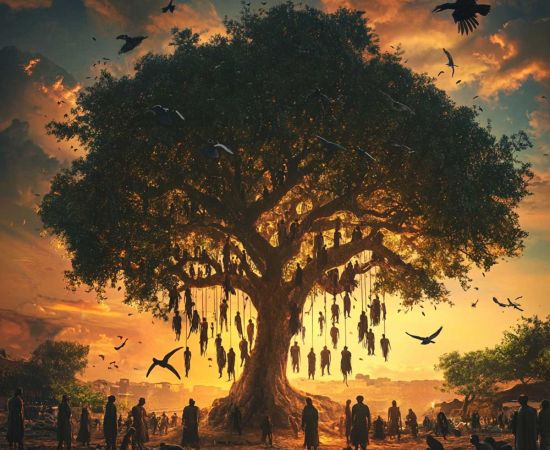MORE COVERAGE
Twitter Coverage
Satyaagrah
Written on
Satyaagrah
Written on
Satyaagrah
Written on
Satyaagrah
Written on
Satyaagrah
Written on
JOIN SATYAAGRAH SOCIAL MEDIA
"I.N.D.I.A bloc partner DMK": 'Uprooting Sanatan Dharma is upholding humanity' says Udhayanidhi Stalin, son of MK Stalin trying to defend his statement ‘Sanatan is like dengue, malaria, corona that needs to be eradicated’ at 'Eradicate Sanatan Conference’

The heart of the bustling city of Chennai witnessed an event on September 2nd, not of cultural celebration or unity, but quite the contrary. The venue, Kamarajar Arangam in Teynampet, saw the so-called Tamil Nadu Progressive Writers and Artists Association take stage to organise their 'Eradicate Sanatan Conference.' The title itself was a glaring giveaway of the deep-seated bias against the ancient and revered Sanatan Dharma, but the presence of DMK leader Udhayanidhi Stalin, son of Tamil Nadu’s Chief Minister, MK Stalin, and a sitting Minister, further fanned the flames of prejudice.
|
|
December 2022 bore witness to Udhayanidhi's announcement of his and his wife's Christian faith - a personal choice in a secular country. But that same secularism seemed at stake when he took the microphone during this Hinduphobic event. His words weren’t those of a responsible politician urging for peace and unity; instead, they dripped with disdain for Hinduism and its countless followers.
"The title of this conference... it's so apt," he began, praising the blatant choice of the word 'abolish' over 'oppose' when referring to Sanatan Dharma. One might wonder, is this the same DMK leader who just recently announced his religious allegiance? Is it justifiable for a leader to spew venom against another faith? The title may have been chosen to instigate, but Udhayanidhi's speech was a testament to a deeper, more concerning animosity.
Drawing a baffling, if not entirely insensitive, analogy, Udhayanidhi likened Hinduism to diseases like dengue, flu, malaria, and even the deadly coronavirus. “These shouldn't just be opposed. They need to be eradicated,” he emphasized. The shocking comparison leaves one wondering: in a land that thrives on its rich tapestry of diverse beliefs, where does such bitterness stem from?
"Our first duty is to abolish Sanatan Dharma, not just oppose it," he proudly declared. Such words not only provoke anger but also raise questions about the integrity and intentions of a leader who belongs to a government that pledges to serve all its citizens, irrespective of their religious beliefs.
|
|
Following his inflammatory remarks that compared Hinduism to diseases like dengue and malaria, Udhayanidhi Stalin's discourse took a fresh turn as he attempted to dissect the meaning and implications of the term 'Sanatan Dharma'. Yet, instead of offering enlightenment, his remarks only further showcased his deep-rooted misunderstandings.
"What exactly is Sanatanam?", he audaciously inquired, answering his own question with a skewed interpretation. He argued that the term, rooted in Sanskrit, stands in opposition to equality and social justice. Drawing from its literal translation as "eternal" or "immutable", he contended that Sanatan Dharma is inflexible and unquestionable.
But is this truly an accurate representation? Sanatan Dharma, at its core, embodies timeless traditions and beliefs that have evolved and stood the test of time. To label it as static and resistant to change reflects a lack of understanding, or perhaps, a willful misrepresentation.
Udhayanidhi's words took another turn as he addressed the caste system, stating that Sanatan Dharma propagated division. Contrastingly, he praised 'Kalaignar' for supposedly uniting communities under the moniker 'Samathuvapuram', positioning it as a counter to Sanatan Dharma.
|
|
Yet, what's intriguing is his personal faith journey – from previously proclaiming atheism to recently identifying as a devout Christian. The shift isn't as eye-catching as the zeal with which he took to platform X, tweeting unabashedly about his desire to eradicate Sanatan.
The 'Eradicate Sanatan' event's attendee list was another cause for alarm. With figures like Tamil Nadu Hindu Religious & Charitable Endowments Minister, PK Sekarbabu, in attendance, questions arise about the state's alleged biased approach towards Hinduism. Could it truly be that the Tamil Nadu government is enabling a state-backed discrimination against one of the world's oldest religions? Appointing those with anti-Hindu Dravidian ideologies to significant positions only intensifies these concerns.
This narrative isn't just about Udhayanidhi's viewpoint. It's a poignant reflection of how the misconceptions about a revered faith can take root, influencing perceptions and driving divisive agendas. One can only hope for introspection and a genuine attempt to understand before casting judgments.
While Udhayanidhi Stalin's contentious remarks at the "Eradicate Sanatan Conference" sparked outrage, the list of attendees added another layer of concern to the already heated discourse. A veritable who's who of influential political and social figures graced the event, raising eyebrows and stoking fears about the prevailing anti-Hindu sentiment.
|
The lineup read like a roll call of controversial figures. The presence of K. Veeramani, leader of the vociferously anti-Hindu Dravidar Kazhagam, was hardly surprising. However, seeing names like DMK MLA Ezhilan Naganathan, VCK MP Thol. Thirumavalavan, K. Balakrishnan of CPI-M, Peter Alphonse of the Congress party, CPI-M MP from Madurai Su. Venkatesan, and notably, Radhika Vemula, mother of the late Rohith Vemula, spoke volumes about the wide-reaching influence of this narrative.
Legal Rights Observatory, a vigilant legal activist group, has vocally expressed its intent to counter this blatant Hinduphobia. The group fiercely tweeted about seeking justice and ensuring Udhayanidhi Stalin faces consequences for his incendiary comments. Their choice of words, comparing the anti-Hindu sentiment to "filthy MOSQUITOES", conveyed a palpable anger.
This anger wasn't misplaced, especially when the DMK leader so openly likened Hinduism to diseases like 'malaria' and 'dengue' on X (formerly known as Twitter). The audacity with which he continued to defend his stance by stating that "Uprooting Sanatan Dharma is upholding humanity" was jarring. The idea of speaking "on behalf of the oppressed & marginalized" while denigrating a religion and its followers was not only contradictory but reeked of insincerity.
Udhayanidhi's interpretation of Sanatan Dharma as a principle of division is concerning. Sanatan Dharma has been, for centuries, a beacon of spiritual enlightenment, guiding countless souls towards introspection, peace, and communal harmony. To reduce such a profound tradition to mere divisive tactics is a travesty.
However, such events and statements don't just reflect on the individuals spewing them. They serve as a mirror to society, reminding us of the importance of unity, understanding, and the dangers of letting misconceptions and prejudice run unchecked.
|
|
While the world grapples with the monumental challenges of the 21st century – from deadly pandemics to divisive politics – a shocking narrative has emerged from the heart of Tamil Nadu. Udhayanidhi Stalin, the son of the Tamil Nadu Chief Minister, MK Stalin, remains steadfast in his audacious criticism of one of the world's oldest religions: Hinduism.
Stalin junior didn’t merely restrict himself to making inflammatory remarks; he invoked two eminent personalities, Periyar and BR Ambedkar, to buttress his claims. Insinuating that these stalwarts conducted 'in-depth research' on the 'negative impact' of Sanatan Dharma on society might raise eyebrows among historians and scholars. These interpretations, particularly about figures of such magnitude, deserve a nuanced understanding rather than reductionist stances.
Doubling down on his audacious claims, the DMK leader furthered the controversial analogy of likening Sanatan Dharma to diseases like COVID-19, Dengue, and Malaria. By drawing such parallels, Udhayanidhi not only trivializes the immense pain and suffering caused by these pandemics but also further deepens the fissures between communities.
However, it's not just the rhetoric that's been making headlines. Following the announcement by the Hindu advocacy group, Legal Rights Observatory (LRO), that they would be pursuing legal actions against Udhayanidhi Stalin for his contentious remarks, the Minister's defiant response on Twitter was stark. Dismissing it as a "usual saffron threat," he unapologetically expressed his readiness to face any legal challenges head-on.
While his contempt for Sanatan Dharma is evident, what's more, concerning is the undertone of such assertions in a diverse nation. The claim, “I will say it today, tomorrow, and forever,” coupled with the call for the annihilation of Hindu civilisational religious philosophy, leaves little room for dialogue.
While everyone is entitled to their opinions, when those in positions of power wield their influence to propagate divisive agendas, it's not just a faith or community that's at risk; it's the very fabric of our diverse society. And as history has shown, societies that give in to such divisive forces seldom find peace.
Tensions are boiling over in Tamil Nadu as political figures brazenly challenge the core tenets of one of India's major religions. Udhayanidhi Stalin, who earlier seemed to wear his Christian faith as a badge of honor to challenge detractors, has now been answered back, and in no uncertain terms.
Tamil Nadu BJP Chief, K Annamalai, didn't mince words. He squarely laid the blame not only on Udhayanidhi Stalin but also questioned the ideologies that he and his family members imbibed. In a blistering critique on Twitter, Annamalai accused Stalin of being a puppet, parroting the alleged malicious ideology of Christian missionaries. The tweet’s scathing tone suggests that the discord is about more than just religious beliefs; it's about the alleged subversion of native ideals for foreign narratives. The accusation that Udhayanidhi and his kin are ‘looting’ the state only adds another layer of complexity to the ongoing feud.
Annamalai's assertion that Tamil Nadu is a land of spiritualism is echoed by many. While it's natural for diverse opinions to exist, the charged atmosphere suggests that this is more than a mere disagreement. It's an all-out battle for the soul of Tamil Nadu, with each side claiming to represent the state's true ethos.
What's alarming, though, is that the disdain for Hinduism isn't confined to Tamil Nadu. Another prominent political figure, Swami Prasad Maurya, associated with the Samajwadi Party, has thrown his hat into the ring. By calling Hinduism a 'hoax', Maurya seems to be playing a dangerous game, likely to further inflame passions.
For many, these statements aren't isolated incidents but indicators of a larger, coordinated campaign against Hinduism. This raises pertinent questions about the nature of political discourse in India. Is it truly about differing ideologies, or is it a calculated push for political gains? Whatever the underlying motives, one thing is clear: the spirit of pluralism, which has been India's strength for millennia, is now under threat. With leaders setting such an example, what hope is there for their followers to find common ground? The answer may very well shape the future of the Indian subcontinent.
 Support Us
Support Us
Satyagraha was born from the heart of our land, with an undying aim to unveil the true essence of Bharat. It seeks to illuminate the hidden tales of our valiant freedom fighters and the rich chronicles that haven't yet sung their complete melody in the mainstream.
While platforms like NDTV and 'The Wire' effortlessly garner funds under the banner of safeguarding democracy, we at Satyagraha walk a different path. Our strength and resonance come from you. In this journey to weave a stronger Bharat, every little contribution amplifies our voice. Let's come together, contribute as you can, and champion the true spirit of our nation.
 |  |  |
| ICICI Bank of Satyaagrah | Razorpay Bank of Satyaagrah | PayPal Bank of Satyaagrah - For International Payments |
If all above doesn't work, then try the LINK below:
Please share the article on other platforms
DISCLAIMER: The author is solely responsible for the views expressed in this article. The author carries the responsibility for citing and/or licensing of images utilized within the text. The website also frequently uses non-commercial images for representational purposes only in line with the article. We are not responsible for the authenticity of such images. If some images have a copyright issue, we request the person/entity to contact us at This email address is being protected from spambots. You need JavaScript enabled to view it. and we will take the necessary actions to resolve the issue.
Related Articles
- "Will you dissolve all idols?" Tamil Nadu police ask Ganesha murti maker Murugan, as Vinayagar Chaturthi nears, DMK's crackdown on artisans, sparks outrage for crippling local economy and distressing Sanatana Dharma practitioners… Condemnable!
- Narasimha Anjaneyar temple demolished in Tamil Nadu despite devotees best efforts to save it, places of worship of other religions are spared
- "To eradicate Sanatana Dharma, we must redirect the antagonism of OBCs from Sudhras to Brahminism and Aryans," asserts VCK Chief Thirumavalavan, key I.N.D.I.A alliance at “Eradicate Sanatanam Conclave” of Progressive Writers and Artists Association
- Tamil Nadu Police in the wee hours arrested Ganesh Babu from Pudukottai district who had given a complaint about religious conversion happening in his area
- Makarpura police registers FIR against Mother Teresa's exposed Missionaries Conversion racket in Gujrat
- Saba Naqvi infers that re-settling Kashmiri Pandits in the valley decades after the genocide was perpetrated against them by Islamic terrorists is a part of the ‘Hinduisation’ project: Mirrors Jihadis and Islam extremists
- Madras High Court on Monday transferred the Lavanya suicide case to the Central Bureau of Investigation after the victim’s parents filed a petition seeking a CBI probe
- Hindumisic AMU professor Jitendra Kumar profane Hindu Dharma, slanders Hindu deities in a slide on ‘historical perspective’ of rape with crude anti-Hindu bigotry – Aligarh Muslim University and media soft-peddle the issue
- Why Hindus not claiming their temples back from the Government control: Is pro-Hindu govt will always be in power
- Online petition titled ‘Free Goa from Indian invasion & its continued illegal occupation against UN resolution’ had been started by Atanasia Lobo
- "इतनी नफ़रत, क्यों?": Gujarat Congress leader arrested for defaming Ram Mandir's Mohit Pandey with manipulated images, Ahmedabad police act against Hiten Pithadiya, spotlighting the battle against digital misinformation and protecting religious dignity
- Car manufacturers Celebrating Pro-terrorism stand on Kashmir has invited massive criticism from National auto dealers’ body: Urges the Ministry of Heavy Industries & SIAM India to seek clarifications
- 23 Jan to 29 Jan - 2022 - Hindus under attack: Bulletin roundup of persecution, discrimination, and hate crimes against Hindus
- 10 April to 16 April 2022 - Hindus under attack: Bulletin roundup of persecution, discrimination, and hate crimes against Hindus
- "Hate is too great a burden to bear": As India strides towards development, IIT Delhi's Prof. Divya Dwivedi incites anger, calling for the wiping out of Hinduism at the global G20 Summit, fostering division rather than appreciating the nation's progress



























